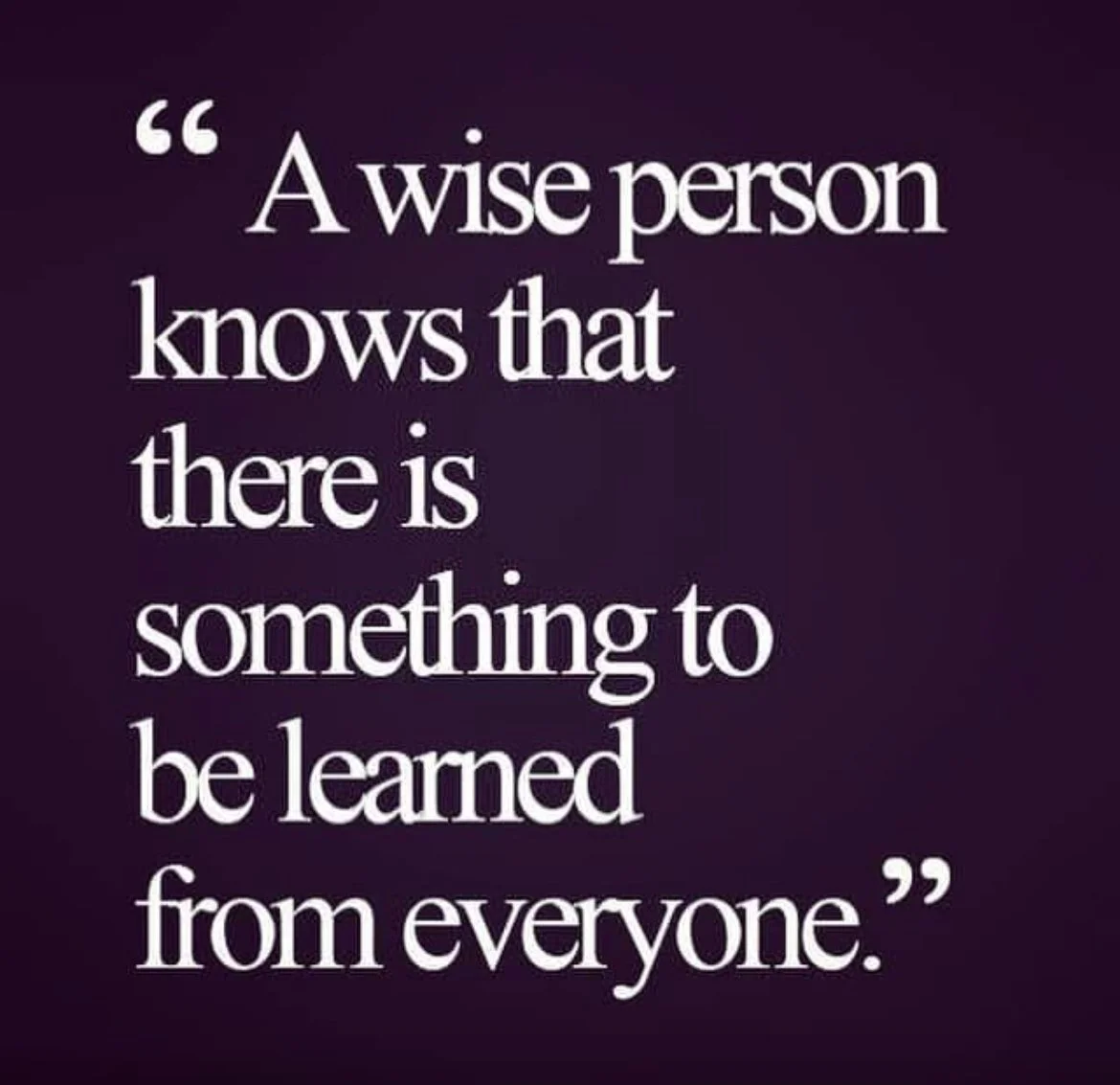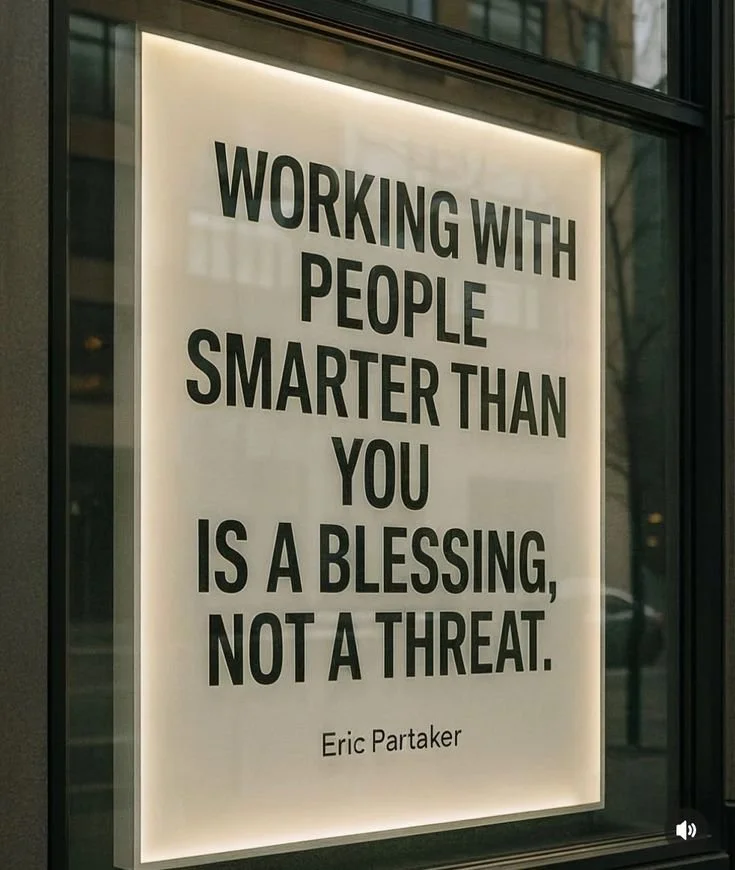I think behavioural variation is one of the healthiest forces in an economy. Incumbent businesses naturally benefit from habit, familiarity, and social proof, which gives them a built-in advantage. New and entrepreneurial businesses almost always start at a disadvantage because they have to earn trust and attention from scratch. When consumers vary their behaviour, they help level the playing field. As this creates real competition, encourages innovation, and ultimately benefits consumers through better choices, quality, and value.
Respect the process
Many employers tend to undervalue instinctive, experience-based knowledge in their people. When someone has been doing something for a long time, they develop a level of judgment and pattern recognition that cannot always be captured by frameworks, metrics, or formal processes. This kind of instinct is not accidental; it is the result of accumulated experience.
Business reality is rarely linear as context shifts, markets change, and human dynamics are complex. As a result, metrics that are useful at one point can lose their relevance if they are pursued too rigidly or for too long. When this happens, organisations risk optimising for the measure rather than for the outcome. I think valuing experience alongside data allows for better decision-making. It recognises that numbers inform direction, but seasoned judgment often determines whether the organisation responds wisely to what is actually happening.
Execution over explanation
There is a profound difference between being busy and being effective. While others are busy talking, boasting, or explaining their value, the disciplined leader is simply building. I think this is the discipline of silence. It is the understanding that you do not need to prove yourself with words. You do not need to explain the "how" or the "why" to those who are merely observing. When you operate with quiet intensity, you guard your focus and protect the destiny of your project.
Seeds need darkness
Innovation and transformation do not survive well under premature scrutiny. Think of your strategic goals as seeds. Every seed requires darkness, patience, and protection to germinate before it can break through into the light.
When we reveal our plans too early, when we explain rather than execute, we are unwittingly inviting resistance. We open the door to doubt and organisational inertia. In many environments, it is an unfortunate reality that people may criticise more than they help, and tear down more than they build. I think in order to protect the integrity of your vision, you must learn to work in the shadows until the foundation is unshakeable. What do you think?
Results matter
In a corporate landscape deafened by constant communication, performative productivity, and endless meetings, the rarest executive competency is not public speaking, it is the discipline of silence. As leaders, we are often tempted to broadcast our intentions, rally the troops with speeches, and seek validation for our plans before they are fully formed. I think the strongest force in your professional life is focus, and speaking too much often invites unnecessary friction.
Ultimately, results are the only language that requires no translation. The most effective leaders know exactly when to step into the light: not when the idea is formed, but when the work is finished. By the time you reveal your hand, the success should be self-evident. Step forward not with arguments or promises, but simply to show what has been done. Silence is not passivity; silence is strength. In a world that won't stop talking, let your execution make the noise.
And what else?
Where are mistakes being made because people are being too rational?
If your business has the independence to make decisions without endless justification, there’s an enormous opportunity here. Look for the places where your competitors are applying rationality where it doesn’t belong, as that’s exactly where you should experiment with being irrational. You won’t always succeed, but when you do, the impact can be extraordinary because the overuse of numerical measures, mathematical models, and rigid logic in areas that demand intuition, empathy, and creativity is one of the greatest sources of inefficiency in modern business. I think sometimes, the most strategic move is to think less like a spreadsheet, and more like a human.
Being different is good
Embracing individuality is essential for personal growth and contributes to the richness of society. Differences in perspectives, experiences, and backgrounds foster creativity, innovation, and understanding among people.
I think there are three benefits of differentiation:
It’s good for consumers because it offers more meaningful choice.
It’s good for businesses because it helps them stand out and avoid price wars with generic competitors.
It strengthens overall resilience by reducing dependency on commoditised offerings and enabling long-term brand loyalty.
Don’t chase the trend
We often protect what we believe we do, rather than grounding ourselves in the first principles of what we actually do. The question then becomes, how can I meet people where they are, offering them a meaningful path toward their aspirations, in a way that aligns with my values and leaves me proud?
I think the world is constantly evolving, and with each shift, there emerges an opportunity, a chance for a change agent to step forward and reshape the narrative. What do you think?
““In infinite games, like business, the players come and go, the rules are changeable, and there is no defined endpoint. There are no winners or losers in an infinite game; there is only ahead and behind.””
Super Bowl LVII
In 2023, Rihanna turned a 13-minute Super Bowl performance into a $250 million windfall - all without earning a cent from the NFL or boosting album sales. How? Through one genius move that redefined the halftime show as a platform for brand storytelling. The Super Bowl, with over 113 million viewers, is one of the most-watched events globally. While the NFL covers production costs, it doesn’t pay performers, who typically use the stage to promote tours or albums. But Rihanna, who hadn’t performed live in seven years and had no new music to promote, saw an untapped opportunity: the halftime show as the world’s most valuable advertising slot.
Mid-performance, she casually used Fenty Beauty’s Invisimatte Blotting Powder compact, a seemingly spontaneous moment that exploded across social media and news outlets. But this was no coincidence. Fenty Beauty had launched new products just days earlier, and Rihanna’s on-stage touch-up drove massive online searches, leading consumers straight to fresh offerings. This strategy aligned perfectly with Fenty’s inclusive ethos, appealing to the Super Bowl’s diverse audience. As a trailblazing Black entrepreneur owning 50% of a $2.8 billion beauty empire, Rihanna’s performance embodied Fenty’s values. The results were extraordinary: Google Trends reported a spike in searches for Fenty Beauty, and analysts estimated $250 million in sales in the months following.
Rihanna’s visionary approach showcased the power of authentic brand building, proving the future of music isn’t just about streaming - it’s about fostering human connection through shared experiences. I think her halftime show wasn’t just entertainment; it was a masterclass in leveraging culture to drive commerce.
Opportunity gives courage
Success often requires taking risks, even when failure is a possibility. Think of an entrepreneur launching a new product: they risk financial loss but also open the door to innovation and market breakthroughs. In a corporate setting, a leader encouraging their team to test bold ideas - knowing some may fail - builds a culture of creativity and resilience. True success isn’t just about avoiding failure; it’s about embracing the lessons it brings and using them to grow stronger.
Trust your instinct
I help individuals develop a success-oriented mindset. I think by trusting your instincts and leveraging the power of storytelling, you can highlight the unique story that sets your business apart. Focus on solving meaningful problems as this is the foundation of true impact. Remember, understanding the difference between being right and achieving success is key to long-term growth.
“We don’t build trust by offering help, we build trust by asking for it.”
Flip it on its head
Can you take a concept that people think they understand very well and flip it on its head?
Yes, no problems!
A brand isn’t just a logo or a company name. I think a brand is a shorthand: it’s what people expect when they hire you, when you walk into the room, or when they see your name. If your approach is just "Tell us what you need, and we’ll make it," you risk losing any distinct identity. You won’t stand for anything unique. Many creatives struggle to set prices for their work, often feeling like a sell-out when they find commercial success.
Value comes from the story and the price. You can choose one of two paths: you can position yourself as an affordable, general option, someone who competes on price alone and gets a steady flow of business. Or you can position yourself as a premium choice, someone who charges more but delivers exceptional value. You may get fewer clients, but those who value quality over cost will seek you out. Who do you want to be?
““Don’t become a wandering generality. Be a meaningful specific.”
”
Business fundamentals
Here are some fundamental questions about a business which are valuable to ask at various key moments in the business lifecycle:
What do we stand for?
What’s our function?
Who do we appeal to?
Who’s our target audience?
How do we present ourselves?
How do we differentiate ourselves?
How do we make ourselves look different and feel valuable to the people who encounter us?
I think these questions will keep the business grounded and adaptable, making sure it consistently offers a clear, differentiated, and valuable experience to its audience.
There is no secret
The secret is there is no secret.
Consistency over intensity.
Progress over perfection.
Fundamentals over fads.
Repeat, over and over again.
This is a fact
In business, we focus on two main objectives: helping you make more money or helping you save money. Even when you make a rational hiring decision, you must provide a strong business case, with clear reasons and justification that others can understand. I think this is encapsulated by the saying, "No one gets fired for choosing Salesforce."
Where do you win?
Even if the market is small initially, you need a strategy to reach a larger market. Good positioning involves understanding your unique value - What can you offer that no one else can? An effective positioning communicates this value in a way that customers can easily grasp. In the business to consumer (B2C) market, value can encompass various factors, such as how a product makes someone look or feel, or how it influences others' perceptions of them based on the brand they use. However, in the business to business (B2B) market, the concept of value is quite different. B2B transactions usually involve multiple stakeholders, typically between 5 and 11, each with decision-making influence. In my experience, you must present a compelling business case to justify why your product or service is the best choice when working in B2B.
Things to consider
In today’s world, business outcomes are influenced by factors such as new technologies, increasing geopolitical uncertainty, value-chain disruptions, energy transition, and climate change. Gender norms also play a significant role in shaping societal roles. In Denmark, it is expected that both men and women contribute to household income, share parental leave equally, and view a model where both parents work in equal proportions as most desirable. I think that promoting an inclusive workplace culture relies on awareness-raising, training, positive reinforcement, and accountability. What do you think?
Trust yourself
c/o Medium
Artificial Intelligence (AI) lacks business acumen, it cannot delve into a business and apply nuance, experience, or patterns learned from other contexts. Back in the days when I used to sell clothes and accessories, I visited various businesses and noticed that many of them faced similar problems, despite different contexts. I think by observing these patterns, I can now have meaningful conversations with leaders and senior executives about their businesses. While AI can analyse data and provide information, it cannot interpret it in a way that human beings can understand, because it cannot grasp the context of what is truly happening in a business. What do you think?
Can they see the correlation?
Moving from asking insightful questions to internalising that information and then communicating it to decision-makers is what I do – bridge building, connecting the dots between various elements. As without this skill, building a business case becomes difficult. Trust is built when you articulate value bridges unique to your customers in a language they understand. By asking better questions, you’ll better understand how your services help your customers achieve their outcomes.
Tips of the trade
Give your customer:
An idea of who you are
Why you do what you do?
Proof that you can be trusted, and that you know what you are talking about





















